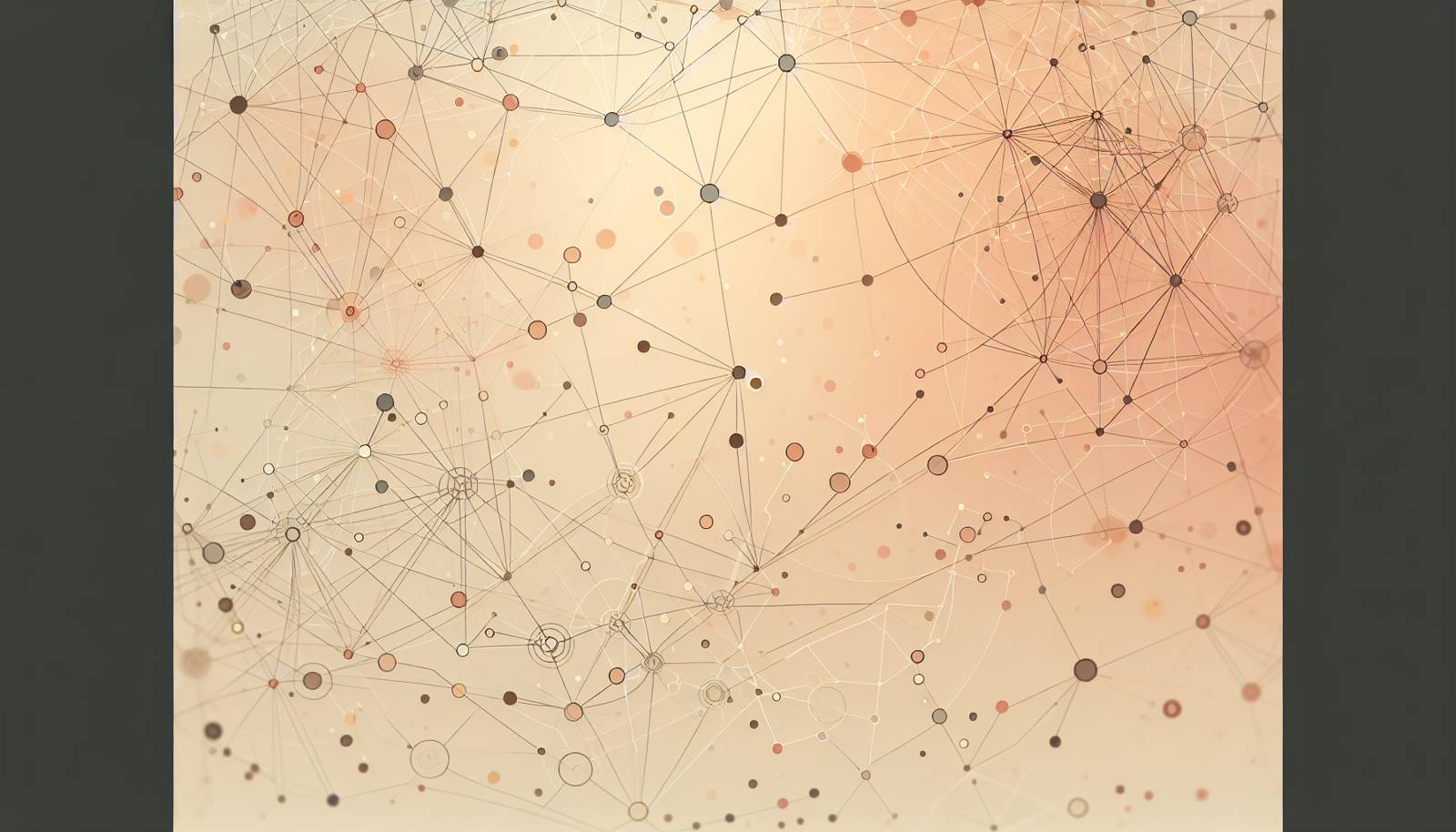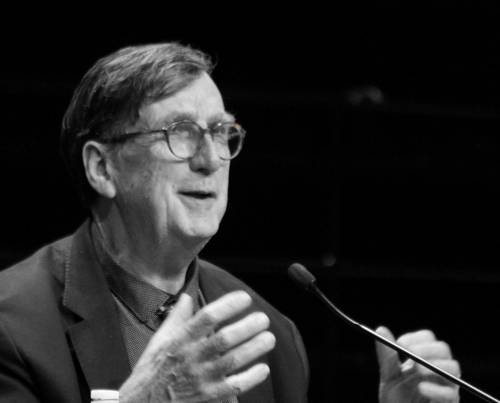
FAQ About Bruno Latour

Who was Bruno Latour?
Bruno Latour was a French philosopher and sociologist who played a pivotal role in the field of Science and Technology Studies (STS). He is best known for developing the Actor-Network Theory (ANT), which explores the interconnectedness of objects, ideas, and individuals in collective processes. Latour's work has significantly influenced contemporary thought around the sociology of science and technology.

What is Actor-Network Theory?
Actor-Network Theory (ANT) is a theoretical and methodological approach developed by Bruno Latour and others that seeks to explain how the social, natural, and technological worlds are connected. ANT suggests that everything in the social and natural worlds exists in constantly shifting networks of relationships. The theory posits that both human and non-human actors can influence and shape these networks, challenging traditional distinctions between human and non-human, subject and object.

What are some of Bruno Latour's most famous works?
Bruno Latour authored numerous influential books and articles. Some of his most noteworthy works include "We Have Never Been Modern", "Science in Action", and "Reassembling the Social: An Introduction to Actor-Network-Theory". These works cover a range of topics related to science, technology, and socio-technical systems, offering insights into how they are interconnected.

How did Bruno Latour view the relationship between science and society?
Bruno Latour argued that science and society are deeply interconnected, with each influencing the other. He believed that scientific facts are social constructs that arise from the interactions between scientists, institutions, and various non-human actors, such as technologies and materials. Latour's work emphasized the importance of understanding these relationships to better grasp how knowledge is produced and maintained.

What influence did Bruno Latour have on the sociology of science?
Bruno Latour significantly impacted the sociology of science by challenging conventional views about the production of scientific knowledge. His Actor-Network Theory (ANT) provided new ways to analyze the dynamic interplay between humans, objects, and scientific practices. Latour's work has encouraged scholars to consider the complex networks that underpin scientific processes, leading to more nuanced understandings of how science is practiced and understood in society.

Why is Bruno Latour compared to postmodern philosophers?
Bruno Latour is often compared to postmodern philosophers because his work challenges traditional notions of objectivity and reality. Like postmodernists, Latour questioned the idea of definitive truths and highlighted the constructed nature of knowledge and facts. His approach, however, is distinct in its focus on the empirical study of scientific practices and the networks that create knowledge, making his work a unique blend of philosophy and sociology.

What did Bruno Latour mean by saying "We have never been modern"?
In his book "We Have Never Been Modern", Bruno Latour argued that the distinction between modern and pre-modern understanding of the world is flawed. He claimed that the separation of nature from culture is a relatively new construct and that humans have always interacted with non-human entities in complex ways. Latour's argument suggests that modernity's sense of progress and separation from the past is an illusion, as these intricate interactions have always existed.

How does Actor-Network Theory differ from traditional theories of sociology?
Actor-Network Theory (ANT) diverges from traditional sociological theories by rejecting the focus on social structures and instead emphasizing the agency of both human and non-human actors in forming networks. Traditional sociology often prioritizes social interactions, hierarchies, and systems, while ANT includes an array of entities like technologies, natural phenomena, and materials as active participants that can influence outcomes and social processes.

Was Bruno Latour involved in the environmental movement?
Bruno Latour was deeply interested in environmental issues, particularly later in his career. His works often explored how scientific knowledge and socio-political aspects of environmental issues intersect. Latour advocated for a new politics that includes non-human stakeholders, emphasizing the interconnectedness of humans and the natural world in addressing ecological challenges.

What is the "Paris Agreement for the Earth" proposed by Bruno Latour?
Bruno Latour proposed the idea of a "Paris Agreement for the Earth" as a way to rethink and reshape global environmental policies. This proposal called for a cooperative framework to engage both political and scientific actors in addressing climate change and the ecology, echoing the cooperative spirit of the Paris Climate Agreement. Latour's vision emphasized inclusive dialogue between humans and various non-human entities to effectively address environmental challenges.

Did Bruno Latour win any awards for his work?
Yes, Bruno Latour received several prestigious awards in recognition of his contributions to sociology and philosophy. One significant accolade was the Holberg Prize in 2013, which honors outstanding contributions to the fields of arts, humanities, social sciences, law, and theology. Latour was recognized for his innovative research and influential perspectives on science and technology.

What role did Bruno Latour play in Science and Technology Studies (STS)?
Bruno Latour played a foundational role in the development and establishment of Science and Technology Studies (STS) as a distinct academic field. His innovative approaches and creation of Actor-Network Theory (ANT) were pivotal in advancing the study of how scientific knowledge is produced and sustained through networks of people, institutions, technologies, and objects. Latour's work has helped shape the contemporary landscape of STS and has provided scholars with tools to critically assess the socio-technical systems in science.

How does Bruno Latour's work connect with climate change discussions?
Bruno Latour's work is highly relevant to climate change discussions, as he emphasized the interconnectedness of humans and non-human actors within socio-technical systems. His theories encourage a perspective that incorporates environmental factors into political and scientific discourse, promoting a more comprehensive understanding of the challenges posed by climate change. Latour advocated for recognizing the agency of non-human entities in crafting solutions, thus adding a unique dimension to climate change dialogue.

What is the significance of Latour's concept of "hybrid" in his theories?
Bruno Latour introduced the concept of "hybrids" to describe entities or processes that blur the boundaries between nature and society. In his view, hybrids encompass the interconnected and overlapping aspects of human and non-human interactions, challenging the traditional separation of nature from culture. This concept is central to his Actor-Network Theory, which posits that these hybrids are a fundamental part of the networks through which scientific and social processes operate.

How did Bruno Latour approach the idea of scientific facts?
Bruno Latour approached scientific facts as social constructs rather than objective truths. He argued that facts are the outcome of complex networks involving various human and non-human actors. This perspective suggests that what is accepted as a scientific fact is contingent upon the interactions and consensus of these actors, emphasizing the fluid and dynamic nature of scientific knowledge.

What was Bruno Latour's stance on the objectivity of science?
Bruno Latour challenged the traditional notion of scientific objectivity by suggesting that scientific knowledge is constructed through networks of relationships involving humans, technologies, and non-human entities. He believed that science is a socio-cultural process that involves negotiation and interpretation, rather than a purely objective pursuit. This stance invites a broader understanding of how knowledge is produced and recognized as valid within society.

Can Bruno Latour's theories be applied outside of science and technology?
Yes, Bruno Latour's theories, particularly Actor-Network Theory (ANT), have widespread applications beyond science and technology. ANT is utilized in diverse fields such as political science, anthropology, environmental studies, and organizational theory. The emphasis on networks and the agency of various actors provides a framework for analyzing complex systems and interactions in different domains beyond scientific and technological contexts.

What is the impact of Bruno Latour’s work on modern philosophy?
Bruno Latour's work has had a profound impact on modern philosophy by bridging the gap between empirical scientific exploration and philosophical inquiries about the nature of reality and knowledge. His innovative ideas have inspired philosophers to reconsider the distinctions between nature and culture, objectivity, and subjectivity. Latour's focus on networks and agency has also influenced contemporary debates about the role of humans and technology in shaping the world.

How does Bruno Latour's approach differ from traditional philosophical methods?
Bruno Latour's approach deviates from traditional philosophical methods by integrating empirical analysis with philosophical concepts. While traditional philosophy often emphasizes abstract reasoning, Latour focused on the practical, real-world interactions among humans, artifacts, and natural entities. His Actor-Network Theory merges sociological inquiry with philosophical exploration, offering a dynamic way to understand the formation and impact of knowledge and technology.

How did Bruno Latour's work influence environmental policies?
Bruno Latour influenced environmental policies by advocating for an inclusive approach that acknowledges the roles of both human and non-human entities in shaping ecological outcomes. His ideas encouraged policymakers to integrate scientific and social perspectives, promoting a holistic view of environmental challenges. Latour's emphasis on networks and hybrid actors has led to more nuanced discussions and strategies for tackling complex environmental issues like climate change.
